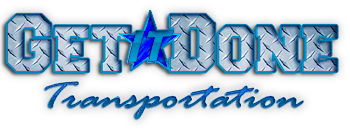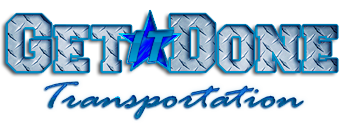Providing the appropriate documents is a fundamental step in the vehicle transport process, ensuring the legality, transparency, and smooth execution of the service. Below is an extensive exploration of the documents required and the importance of each in the context of vehicle transport:
1. Vehicle Ownership Documents:
- Title and Registration:
- Proof of ownership through the vehicle’s title and registration is crucial to establish legality and authorize transport.
- Bill of Sale or Lease Agreement:
- In the absence of a title, a bill of sale or a lease agreement may be required to validate ownership or rightful possession.
2. Insurance Documentation:
- Insurance Policy:
- Presenting the vehicle’s insurance policy is essential to ascertain existing coverage and address any damages or liabilities during transport.
- Supplementary Insurance:
- If additional coverage is purchased, providing this supplementary insurance documentation is vital to affirm extended protection.
3. Identification Documents:
- Photo ID or Driver’s License:
- A government-issued photo ID or driver’s license is indispensable to verify the identity of the vehicle owner or the person arranging the transport.
- Power of Attorney:
- If someone else is arranging the transport on behalf of the owner, a notarized power of attorney is needed to authorize actions and decisions.
4. Vehicle Condition Report:
- Inspection Report:
- A detailed inspection report, recorded at the pickup, should be provided, documenting the vehicle’s condition, including any pre-existing damages or issues.
- Photographic Evidence:
- Accompanying photographs can substantiate the inspection report, providing visual evidence of the vehicle’s condition at the time of handover.
5. Transport Contract and Agreement:
- Service Contract:
- The transport agreement or contract outlines the terms, conditions, responsibilities, and obligations involved in the transport service.
- Cost and Payment Details:
- This document should transparently detail the cost structure, included services, and any additional fees, along with payment terms and methods.
6. Customs and Import/Export Documentation:
- Customs Declaration:
- For international transports, a customs declaration form is required to detail the vehicle’s specifics and satisfy import/export regulations.
- Import/Export Permit:
- Relevant permits are essential to comply with the legal prerequisites of the countries involved in the transport.
7. Vehicle Specifications and Details:
- Make, Model, and Year:
- Providing accurate information regarding the make, model, and year of the vehicle is fundamental for accurate quoting and transport preparations.
- Vehicle Identification Number (VIN):
- The VIN is critical to uniquely identify the vehicle and confirm its specifications and history.
8. Additional Documentation:
- Lienholder Authorization:
- If there’s a lien on the vehicle, securing authorization from the lienholder is crucial to permit the transport.
- Special Instructions or Requirements:
- Any specific instructions or requirements related to the vehicle should be documented to inform and guide the transport company.
9. Documentation for Inoperable Vehicles:
- Condition Disclosure:
- Full disclosure regarding the inoperable condition and any specific handling needs is essential to arrange suitable transport solutions.
- Handling Instructions:
- Detailed instructions about loading, unloading, and securing the vehicle are necessary to prevent damages and ensure safety.
10. Security and Privacy Considerations:
- Personal Information Protection:
- It’s vital to secure personal information included in the documents, adhering to privacy laws and minimizing unauthorized access risks.
- Document Copies:
- Providing copies while retaining the original documents helps in protecting valuable information and avoiding potential losses.
Conclusion:
In the realm of vehicle transport, documents act as the threads weaving the fabric of legality, transparency, responsibility, and trust. Each document serves as a beacon illuminating the intricate pathways of ownership, identity, condition, agreement, compliance, and specificity. The confluence of these documents shapes the landscape of interactions, negotiations, executions, and resolutions within the vehicle transport journey.
The meticulous compilation, verification, and submission of the required documents are the cornerstones upon which the edifice of vehicle transport is constructed. They are the foundations embedding the values of integrity, clarity, accountability, and diligence in the structural integrity of the transport process.
In this intricate dance of documentation, the symphony of information, evidence, agreements, and disclosures plays harmoniously, orchestrating the rhythm of legal concord, contractual harmony, and customer satisfaction. It’s a journey through the realms of bureaucratic nuances, logistical details, contractual subtleties, and customer-centric orientations, exploring the myriad dimensions of vehicular mobility, logistical proficiency, and service excellence in the multifaceted world of vehicle transport.







